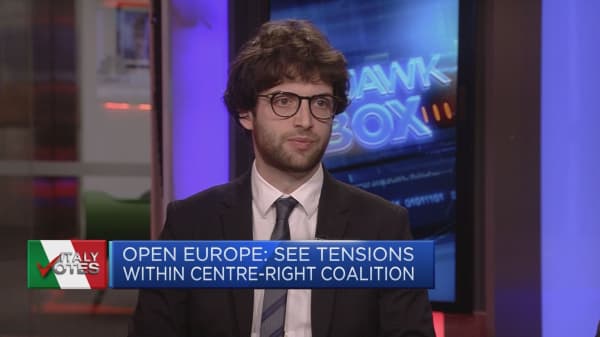In about six weeks' time, two of Europe's largest economies are likely to have no-one in charge.
With German coalition talks hitting a stumbling block of their own and unlikely to reach a conclusion before Easter, the other hurdle is Italian elections on March 4.
While the anti-establishment party, the Five Star Movement, is in the lead on an individual party basis, the last few months have seen a strong push in favor of the center-right bloc. This is formed of ex-Prime Minister Silvio Berlusconi's Forza Italia, the more right-wing Northern League party led by an outspoken Matteo Salvini, and the Brothers of Italy, a nationalist party.
These three together are polling around 37 percent of the votes, just shy of the 40 percent target needed to gain extra seats in parliament and ensuring an absolute majority.






